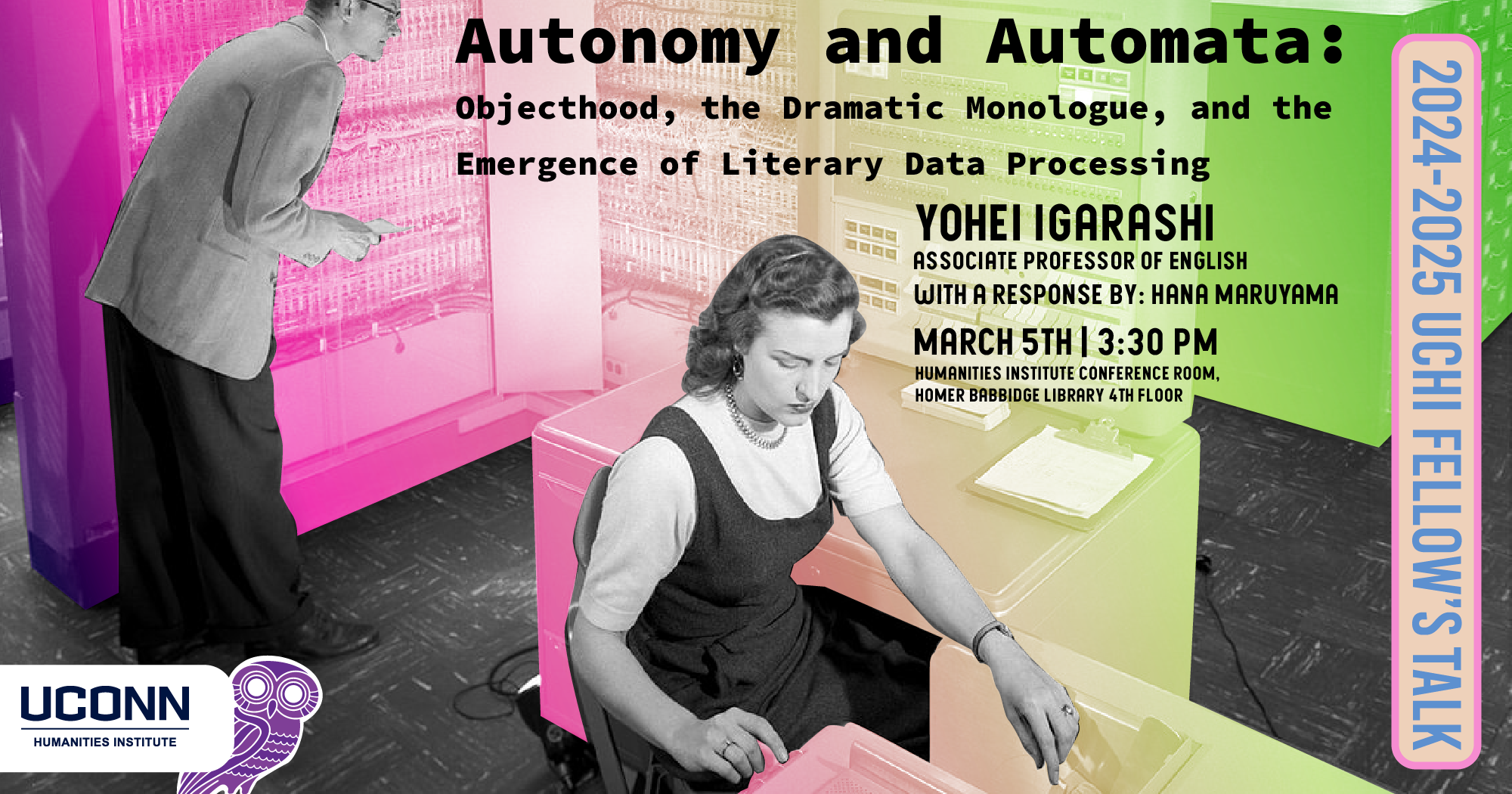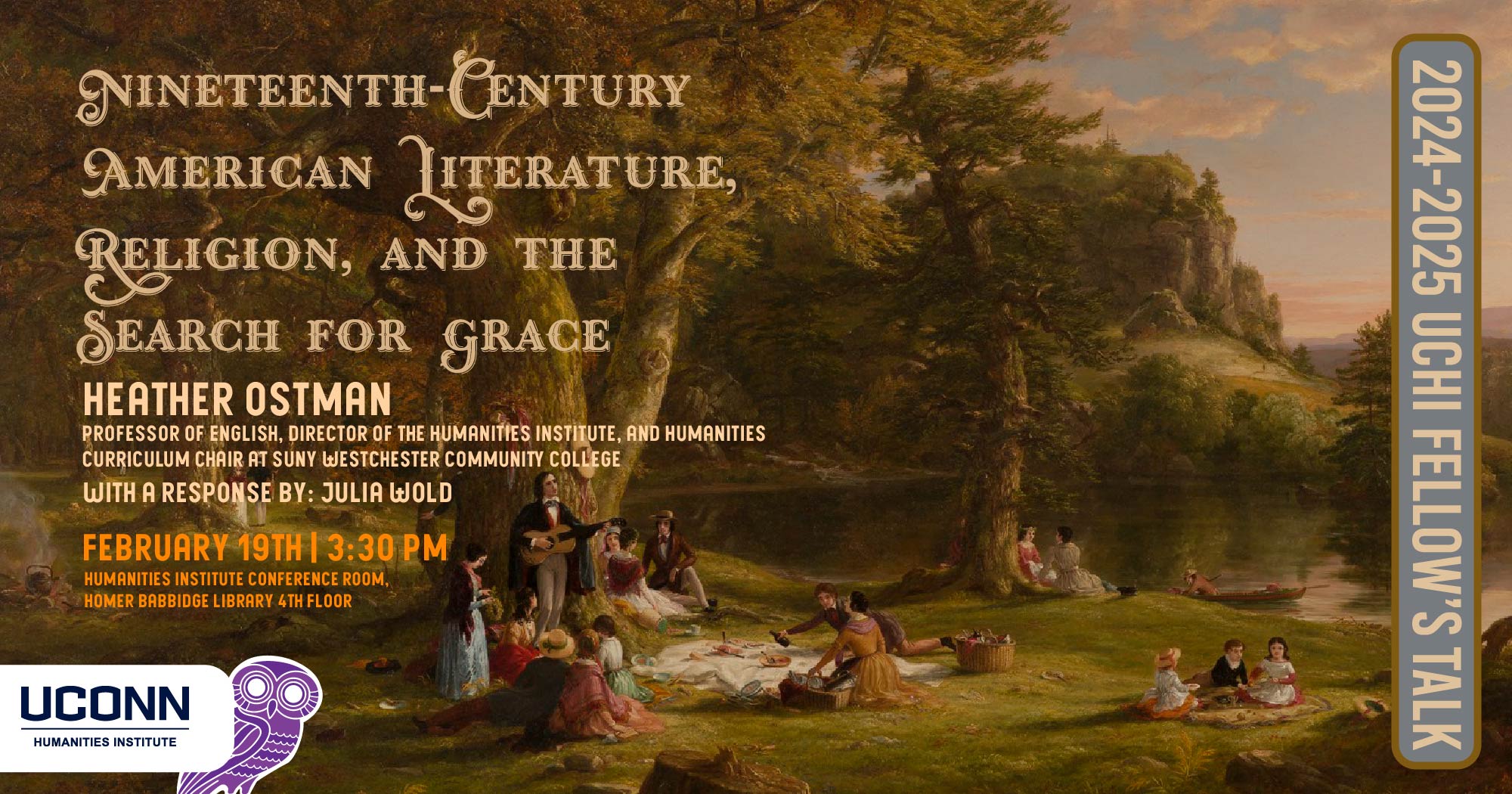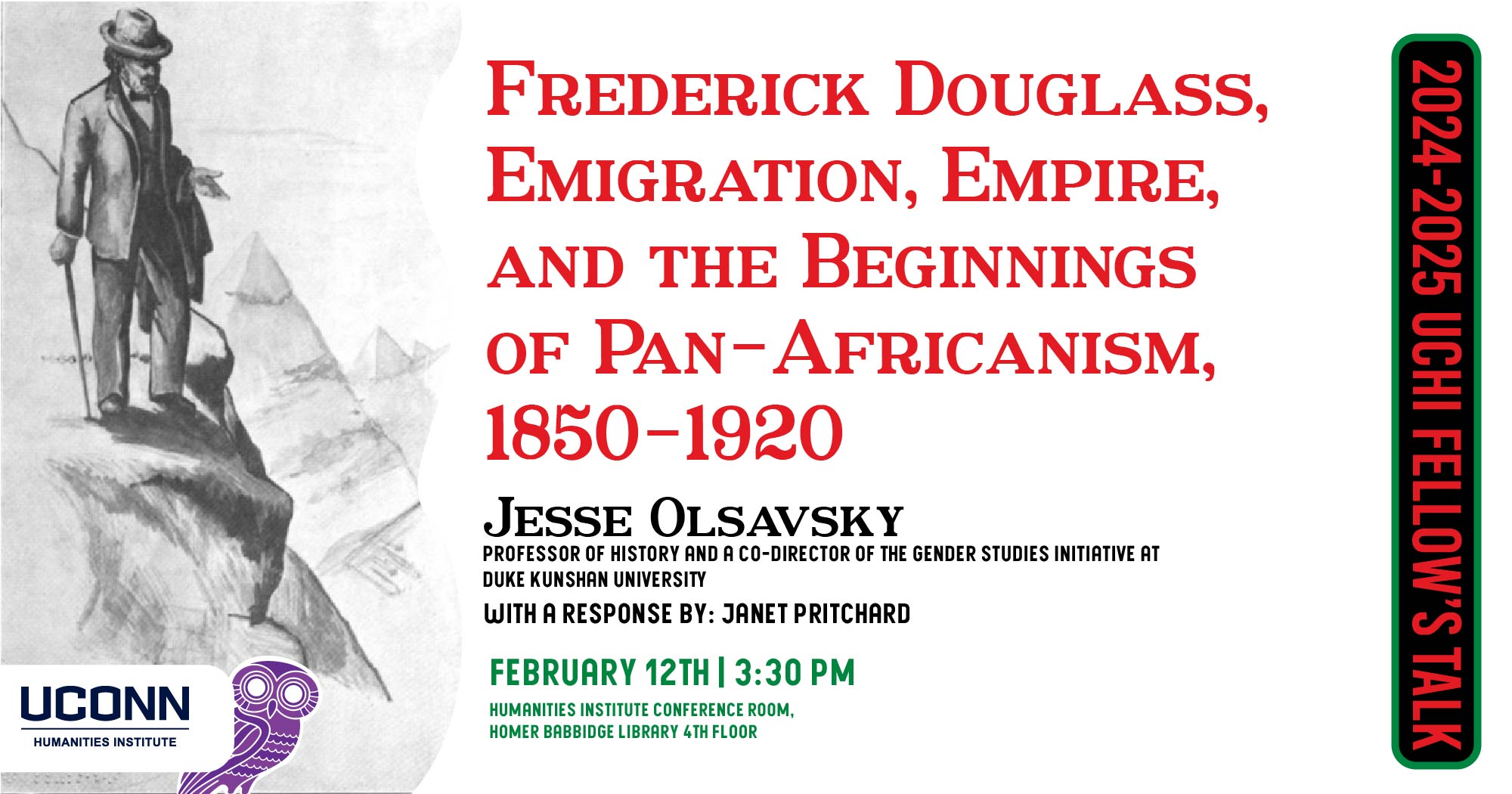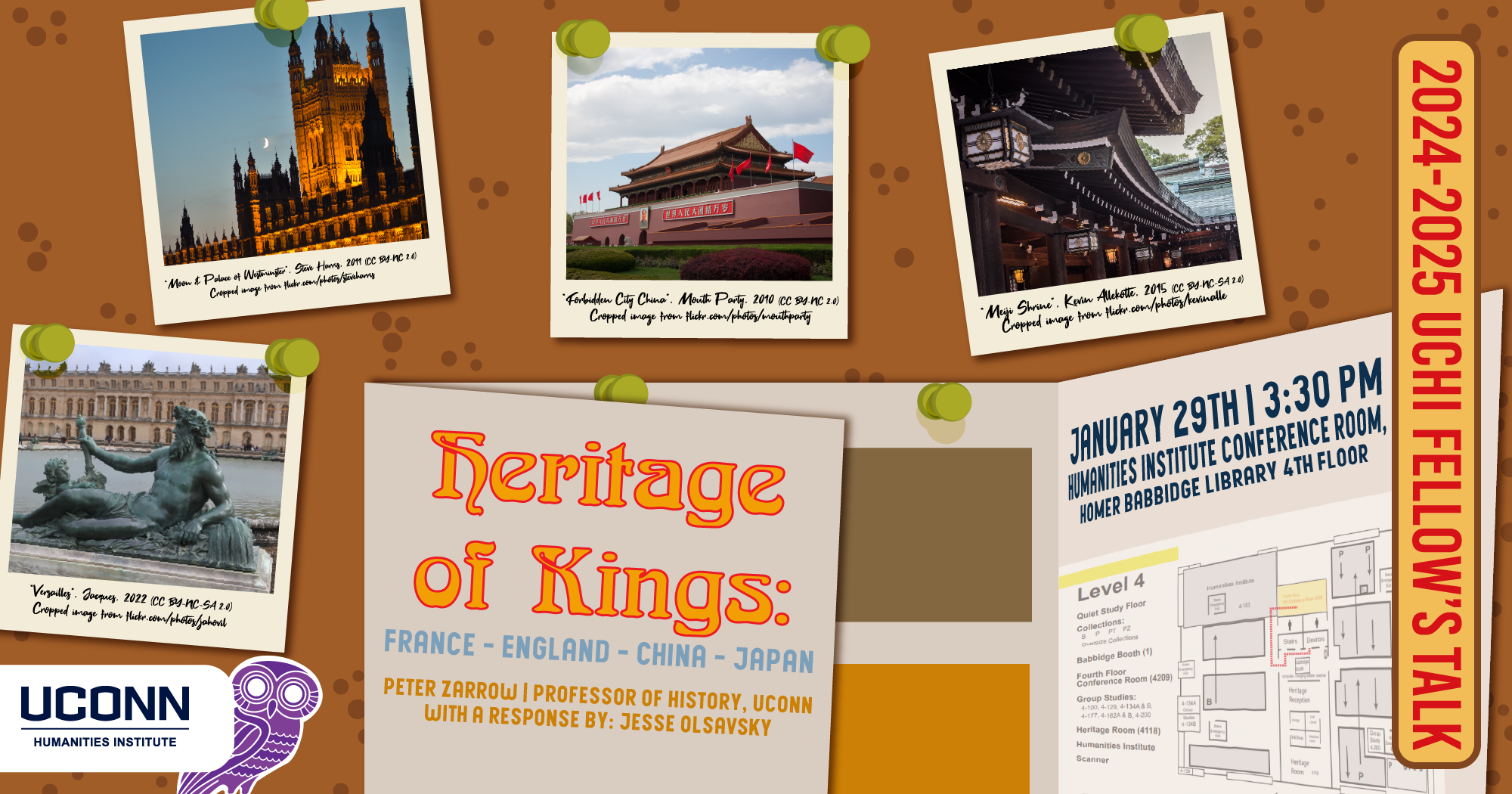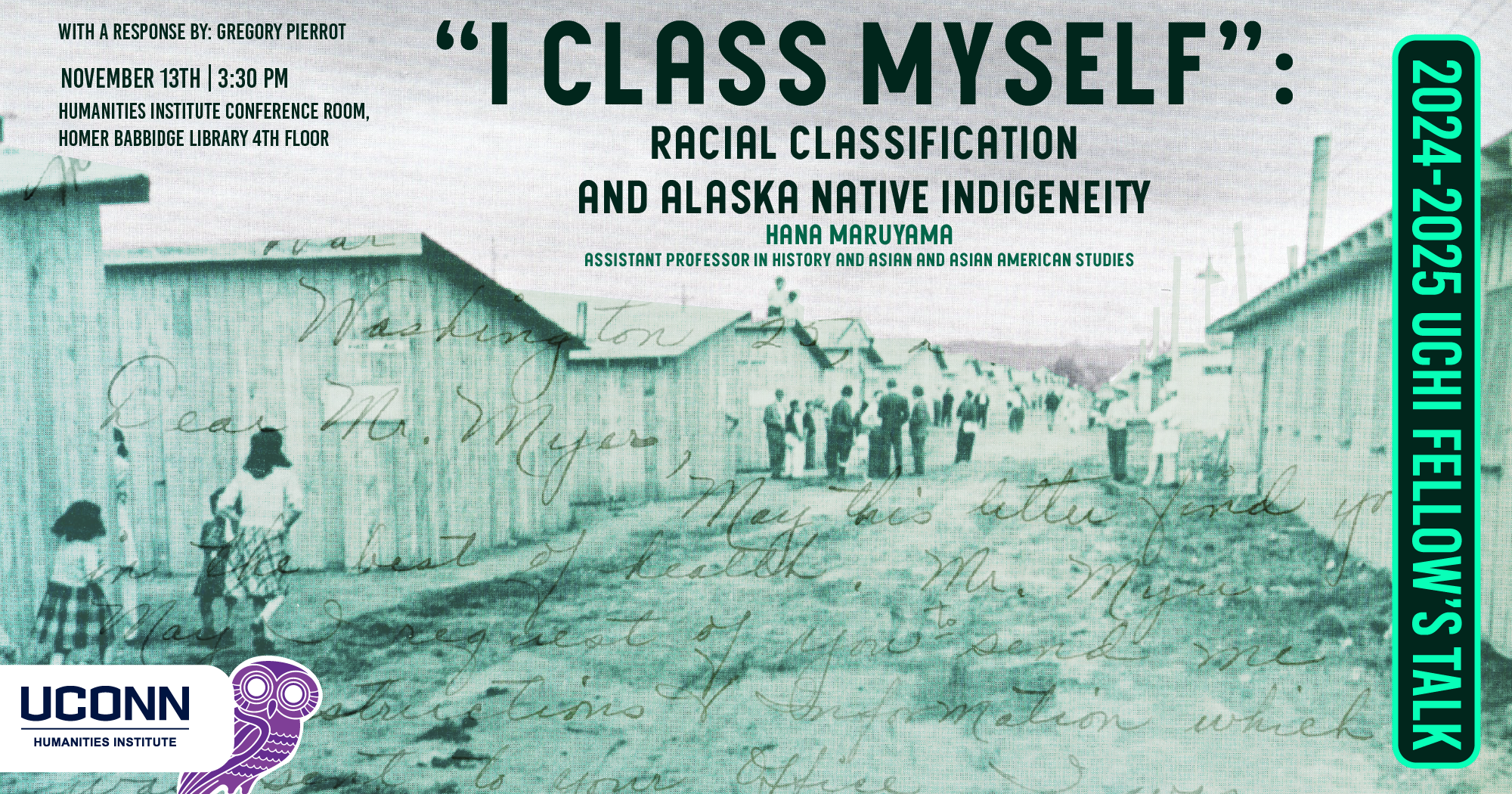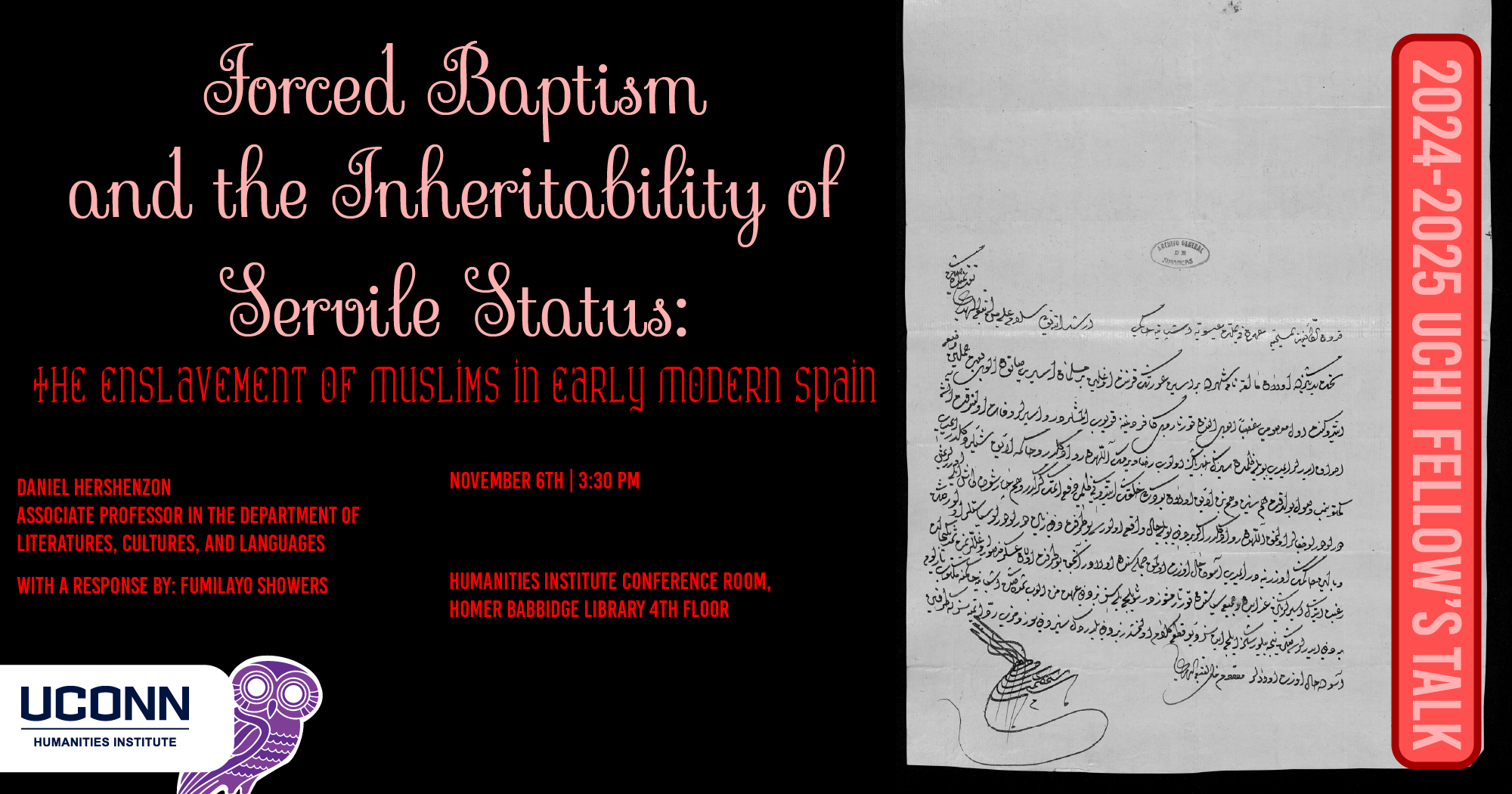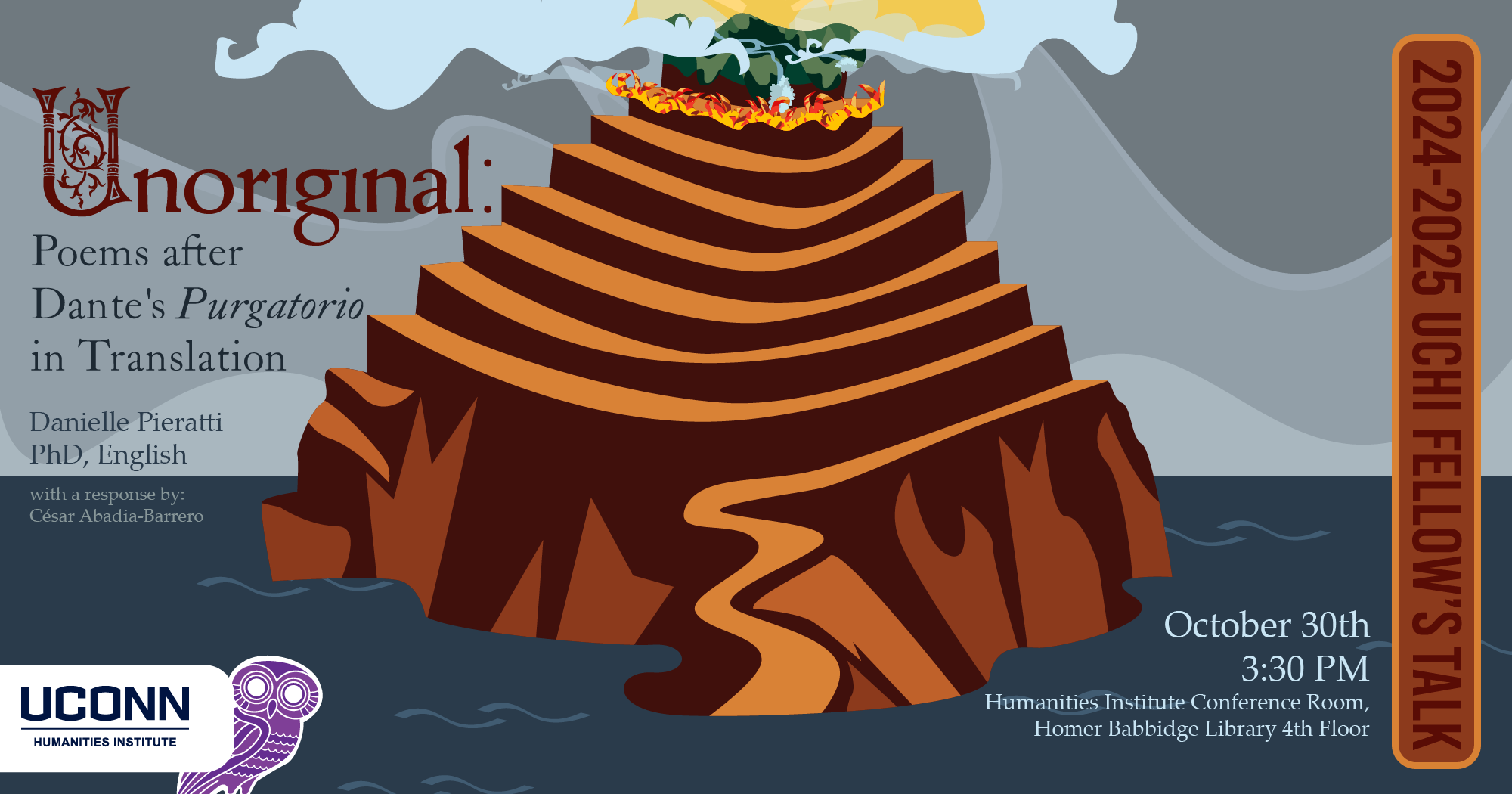
The Fire This Time: Ronald L. Fair’s Many Thousand Gone, a Forgotten Fable
Grégory Pierrot (Associate Professor of English, UConn)
with a response by Danielle Pieratti (English, UConn)
Wednesday March 12, 2025, 3:30pm, Humanities Institute Conference Room (HBL 4-209)
The event will also be livestreamed with automated captioning.
In the wake of the Civil Rights Act and before the advent of the Black Power Movement, the year 1965 was a turning point for African American politics and culture, embodied in the radical turn taken by Malcolm X in the months leading up to his assassination. This talk reads Ronald L. Fair’s 1965 novel Many Thousand Gone: An American Fable as a counterpoint to Malcolm X, in the light of the globalization of Black politics.
Grégory Pierrot is Associate Professor of English at the University of Connecticut at Stamford where he teaches American and African American literature. His research bears on the cultural networks of the Black Atlantic. He is the author of The Black Avenger in Atlantic Culture (UGA, 2019) and Decolonize Hipsters (OR Books, 2021). He is co-editor with Marlene L. Daut and Marion Rohrleitner of Haitian Revolutionary Fictions: An Anthology (UVA, 2021), and co-author with Paul Youngquist of a scholarly edition of Marcus Rainsford’s An Historical Account of the Black Empire of Hayti (Duke 2013). He is also part of a team of researchers led by Dr. Maria Baelieva Solomon (UMD) working on a digital edition of the 19th-century, French-language abolitionist review La Revue des colonies, recipient of a NHPRC grant. He will be spending his fellowship year working on his next project, a French-language monograph tentatively titled “Le Temps d’une nation noire: fictions révolutionnaires du Black Power” that will explore how American writers imagined imminent African American revolution through fiction during the Black Power era.
Danielle Pieratti (she/her) is a doctoral candidate in the English Department. She holds degrees from Carnegie Mellon University, SUNY at Albany, and Columbia University, where she earned an MFA in poetry. She is the author of two poetry collections: Approximate Body (2023), and Connecticut Book Award winner Fugitives (2016). Transparencies, her translated volume of works by Italian poet Maria Borio, was published by World Poetry Books in 2022. Danielle was a 2023 poetry and translation fellow of the Connecticut Office of the Arts, and currently serves as poetry editor for the international literary journal Asymptote.
Access note
If you require accommodation to attend this event, please contact us at uchi@uconn.edu or by phone (860) 486-9057. We can request ASL interpretation, computer-assisted real time transcription, and other accommodations offered by the Center for Students with Disabilities.
